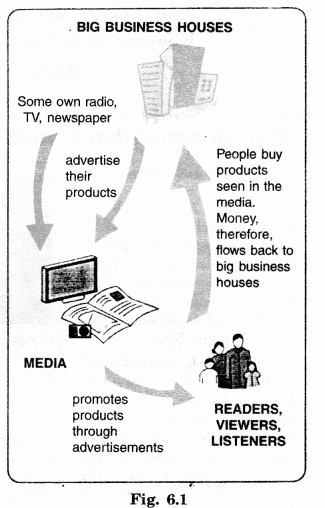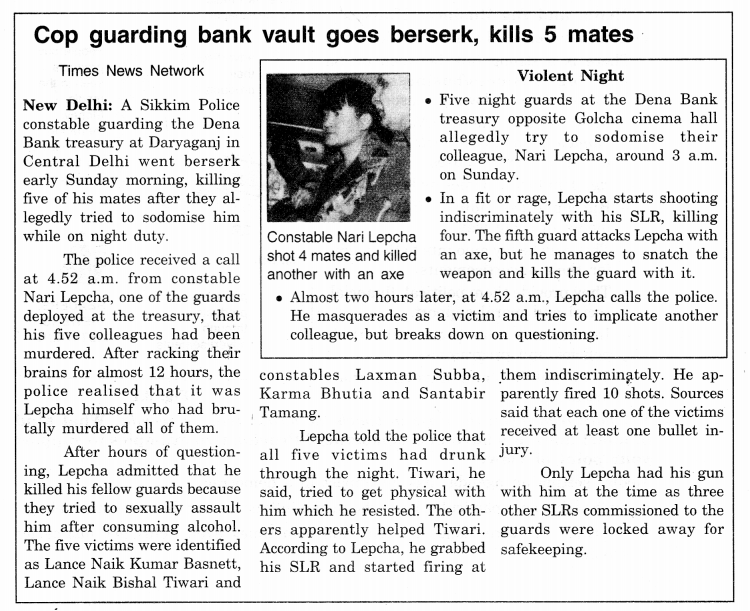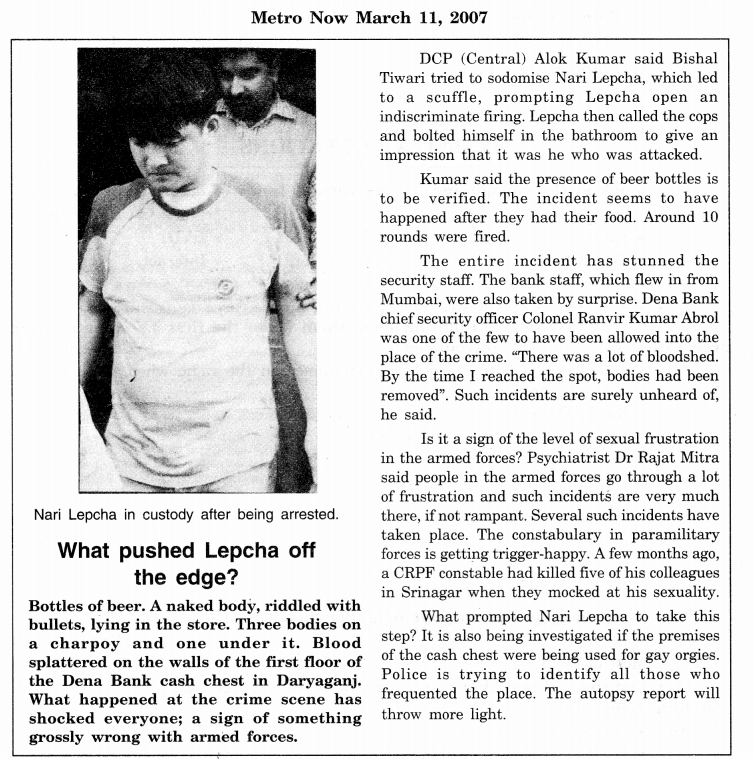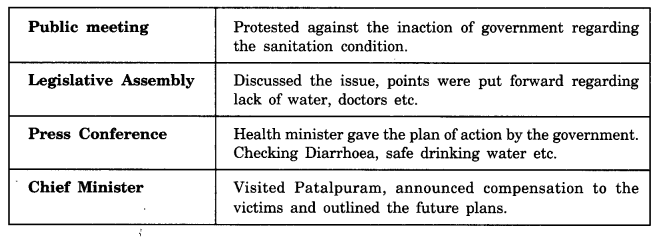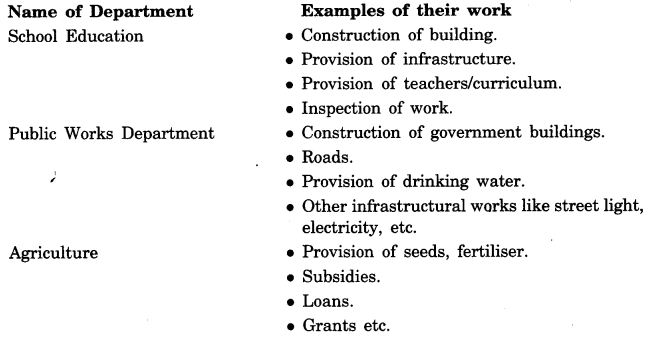NCERT Solutions for Class 7 English Honeycomb Chapter 5 Quality are part of NCERT Solutions for Class 7 English. Here we have given NCERT Solutions for Class 7 English Honeycomb Chapter 5 Quality.
| Board | CBSE |
| Textbook | NCERT |
| Class | Class 7 |
| Subject | English Honeycomb |
| Chapter | Chapter 5 |
| Chapter Name | Quality |
| Number of Questions Solved | 25 |
| Category | NCERT Solutions |
NCERT Solutions for Class 7 English Honeycomb Chapter 5 Quality
IMPORTANT PASSAGES FOR COMPREHENSION
Read the following extracts and answer the questions that follow by choosing the correct option :
Question 1.
It was not possible to go to him very often-his boots lasted terribly, having something beyond the temporary, some essence of boot stitched into them. (Page 71-72)
Multiple Choice Questions
Question 1.
The infrequent visits by author were due to
(a) Gessler’s shoes lasted long
(b) the author did not get time
(c) the father kept busy
(d) Gessler’s shoes were of bad quality
Answer.
(a) Gessler’s shoes lasted long
Question 2.
The shoes making (for Mr. Gessler) was
(a) a difficult task
(b) an easy task
(c) an art
(d) quite expensive
Answer.
(c) an art
Question 3.
‘essence’ here means
(a) distinctive feature
(b) substance
(c) concentrate
(d) important
Answer.
(b) substance
Question 2.
He took my order without showing me any leather and I could feel his eyes penetrating the inferior covering of my foot. (Page 74)
Questions.
- Who is ‘he’ in the above sentence ?
- What were his eyes doing ?
- Why had the author gone to him ?
Answers.
- In this sentence, ‘he’ refers to Mr. Gessler, one of the two brothers who owned the shoe-shop.
- His eyes were looking intently at the author’s shoes.
- The author had gone to him to place his order for new shoes.
Question 3.
And looking at his lined face, I saw things I had never noticed before, (Page 75)
Multiple Choice Questions
Question 1.
The lined face showed
(a) his satisfaction for
(b) the struggle for survival advertisements
(c) his problems
(d) the lines on his face
Answer.
(b) the struggle for survival
Question 2.
The author could guess that Mr. Gessler was not in favour of
(a) big firms
(b) advertisements by big firms
(c) good quality
(d) bad quality
Answer.
(b) advertisements by big firms
Question 3.
In modern times, the big firms
(a) get good business in summers
(b) are cheating the people
(c) have employed advertisers
(d) are minting money
Answer.
(b) are cheating the people
Question 4.
“poor old man starved himself. Slow starvation, the doctor called it. You see he went to work in such a way.” (Page 77)
Questions.
- Who is the ‘poor old man’ ?
- How did he die ?
- Name the lesson from which these lines have been taken.
Answers.
- The poor old man refers to the younger of the two Gessler brothers.
- He died of slow starvation.
- The name of the lesson is ‘Quality’.
Question 5.
He lost everybody. And there he’d sit, going on and on. I will say that for him not a man in London made a better boot.
Multiple Choice Questions
Question 1.
These lines are spoken by
(a) a young English man
(b) the younger brother
(c) the elder brother
(d) the company manager
Answer.
(a) a young English man
Question 2.
‘everybody’ refers to
(a) people/customers
(b) brother
(c) associates
(d) friends
Answer.
(a) people/customers
Question 3.
‘He took long time to execute his order’ shows
(a) he was slow
(b) his insistence on quality
(c) his failure
(d) his physical inability
Answer.
(b) his insistence on quality
TEXTUAL QUESTIONS
(Page 78)
Working with the Text
Answer the following Questions :
Question 1.
What was the author’s opinion about Mr. Gessler as a bootmaker ? (V. Imp.)
Answer.
The author had a very high opinion of Mr. Gessler as a bootmaker. The boots made by them lasted very long. He got his first boots made by them when he was fourteen. He called their boots mysterious and wonderful. He agreed with Mr. Gessler who said that making such boots was an art.
Question 2.
Why did the author visit the shop so infrequently? (Imp.)
Answer.
The author visited his shop very infrequently. It was because the boots he made lasted very long. They never seemed temporary. It seemed as if it were essence of boots stitched into them.
Question 3.
What was the effect on Mr. Gessler of the author’s remark about a certain pair of boots ?
Answer.
Once the author told Mr. Gessler that a certain pair of his boots creaked. At first Mr. Gessler found it difficult to believe. However, the author repeated his complaint. At this he asked him to send that pair back. He promised to either mend it or to take it off from the bill. The author felt that he should not have mentioned that pair. Mr. Gessler had felt very shocked by the complaint.
Question 4.
What was Mr. Gessler’s complaint against “big firms” ?
Answer.
Mr. Gessler’s complaint about the big firms was that they took away all his business. They did so not by virtue of their work but by advertisement. He was full of resentment against them. He said that these firms had no self-respect. Their boots often hurt the customers.
Question 5.
Why did the author order so many pairs of boots ? Did he really need them ?
Answer.
The author ordered many pairs of boots because he felt pity for the bootmaker. He knew that his boots were the best in quality. Yet the man was dying of starvation. So the author ordered several boots although he did not need them.
Working with Language
Question 1.
Study the following phrases and their meanings. Use them appropriately to complete the sentences that follow.
look after : take care of
look down on : disapprove or regard as inferior
look in (on someone) : make a short visit
look into : investigate
look out : be careful
look up : improve
look up to : admire
(i) After a very long spell of heat, the weather is …….. at last.
(ii) We have no right to ………. people who do small jobs.
(iii) Nitin has always …… his uncle, who is a self-made man.
(iv) The police are ……. the matter thoroughly.
(v) If you want to go out, I will ……….. the children for you.
(vi) I promise to ……….. on your brother when I visit Lucknow next.
(vii) ………. when you are crossing the main road.
Answers.
- looking up
- look down on
- looked up to
- looking into
- look after
- look in
- Look out
Question 2.
Read the following sets of words loudly and clearly.
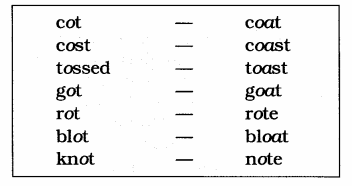
Answer.
Students should read these words themselves loudly and clearly.
Question 3.
Each of the following words contains the sound ‘sh’ (as in shine) in the beginning or in the middle or at the end. First speak out all the words clearly. Then arrange the words in three groups in the table below.
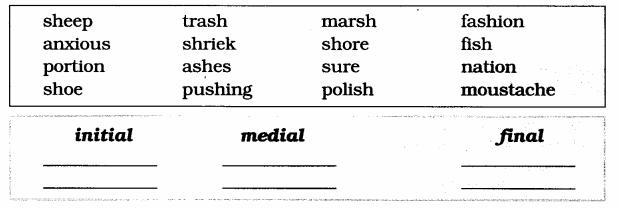
Answers.
Students should read these words first and then complete the table as follows:
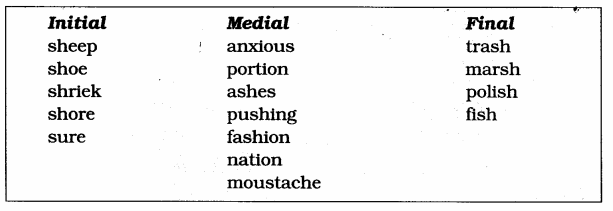
Question 4.
In each of the following words ‘ch’ represents the same consonant sound as in
‘chair’. The words on the left have this sound initially. Those on the right have it finally. Speak each word clearly.
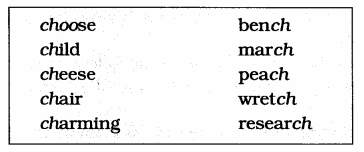
Underline the letters representing this sound in each of the following words.
- feature
- archery
- picture
- reaching
- nature
- matches
- riches
- batch
- church
Answers.
Students should read these words themselves. Then mark the following underlined letters which represent ‘ch’ sound :
- feature
- archery
- picture
- reaching
- nature
- matches
- riches
- batch
- church
Speaking
Question 1.
Do you think Mr Gessler was a failure as a bootmaker or as a competitive
businessman ?
Answer.
I think Mr Gessler was a successful bootmaker. His boots were known for their quality. People waited for long for his boots. But as a competitive businessman he was a complete failure. He never made any advertisement. He took his own time in the making of boots. So he delivered the orders very late. People lost patience. It made his business flop.
Question 2.
What is the significance of the title ? To whom or to what does it refer ?
Answer.
The title ‘Quality’ is significant because this refers to the theme of the story. The whole story says that the modern age is the age of quantity and not quality. Those who produce much in quick time get success. On the other hand those who bother about the quality as Mr. Gessler did, fail. So ‘Quality’ is a very apt title for this story.
Question 3.
• Notice the way Mr Gessler speaks English. His English is influenced by his mother tongue. He speaks English with an accent.
• When Mr Gessler speaks, p, t, k, sound like b, d, g. Can you say these words as Mr Gessler would say them ?
It comes and never stops. Does it bother me ? Not at all.
Ask my brother, please.
Answers.
• Mr Gessler speaks English with the accent of his mother tongue. It appears to be funny sometimes.
• Mr Gessler would say the following line in the following way :
Id comes and never sdobs. Does id bother me ? Nod ad all. Asg my brother
blease.
Question 4.
Speak to five adults in your neighbourhood. Ask them the following questions (in any language they are comfortable in). Then come back and share your findings with the class.
(i) Do they buy their provisions packed in plastic packets at a big store, or loose, from a smaller store near their house ?
(ii) Where do they buy their footwear ? Do they buy branded footwear, or foot wear made locally ? What reasons do they have for their preference ?
(iii) Do they buy ready-made clothes, or buy cloth and get their clothes stitched by a tailor ? Which do they think is better?
Answers.
- No they don’t prefer to buy their provisions packed in packets at a big store. There are only a few who buy packed items. Most of them prefer loose items from smaller stores near their house.
- They buy their footwear from local cobbler. They prefer handmade shoes. They are a few who prefer branded shoes from Bata stores.
- They buy clothes and get them stitched by tailor. They think that ready made clothes are costly and not long-lasting.
Question 5.
Look at the picture below.
Let pairs of students talk to each other about leaving the country. One student repeats Ajit’s statement. The other gives a reason for not agreeing with Ajit. The sentence openings given below should be used.
• If I leave this country. I’ll miss …
• There are some things which you can get only here, for example…
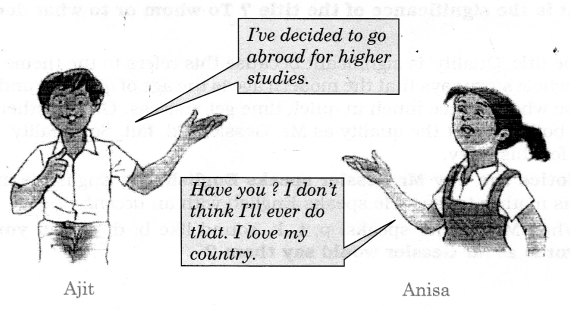
• There are some special days I’ll miss, particularly…
• Most of all I’ll miss…because…
• I think it’s impossible for me to leave my country because…
• How can you leave your own country except when… ?
• Depends on one’s intention. I can’t leave for good because…
• Maybe for a couple of years…
Answers.
For discussion at class level. One sample answer is given below :
A discussion between Rakesh and Rohit :
Rakesh : Hello Rohit ! Now I have decided to go abroad for higher studies.
Rohit : Thank God. At last you have decided it. But I don’t think so.
Rakesh : In fact I feel studying abroad is more fruitful. It gives perfection.
Rohit : I don’t agree to it. I feel there are institutions in India also which are perfect.
Rakesh : No I don’t feel so. No doubt, I love my country. I know when I leave I’ll miss my friends and Indian culture. Indian love and relationship is rare.
Rohit : I shall never think to leave my country. Indian festivals are great for me.
Rakesh : Leaving one’s country depends upon one’s intention. I want to go abroad for studies. I’ll stay there for only a couple of years.
Rohit : Thanks for your good intention and love for country. I wish my best for you.
Writing
Question 1.
Based on the following points write a story.
• Your aunt has gone to her mother’s house.
• Your uncle does his cooking.
• He is absent-minded.
• He puts vegetables on the stove.
• He begins to clean his bicycle outside.
• The neighbour calls out saying something is burning.
• Your uncle rushes to the kitchen.
• To save vegetables, he puts some oil on them.
• Unfortunately, it’s machine oil, not cooking oil.
• What do you think happens to the vegetables ?
Begin like this :
Last month my aunt decided to visit her parents…
Answer.
Last month my aunt went to visit her parents. In her absence my uncle began cooking. Uncle was absent-minded. First he began with vegetable. He put it on the stove in a pot. But he forgot it instantly. He began cleaning his bicycle. He was alerted by the neighbour about something burning. The uncle rushed to the kitchen. He poured machine oil instead of cooking oil in the vegetable. It was completely spoiled. My uncle created a very confusing scene all around.
We hope the NCERT Solutions for Class 7 English Honeycomb Chapter 5 Quality help you. If you have any query regarding NCERT Solutions for Class 7 English Honeycomb Chapter 5 Quality, drop a comment below and we will get back to you at the earliest.
